The Prey Read online
Contents
Cover Page
Title Page
Copyright Page
AUTHOR’S NOTE
PROLOGUE
PART ONE
Chapter 1
Chapter 2
Chapter 3
Chapter 4
Chapter 5
Chapter 6
Chapter 7
Chapter 8
Chapter 9
Chapter 10
Chapter 11
Chapter 12
PART TWO
Chapter 13
Chapter 14
Chapter 15
Chapter 16
Chapter 17
Chapter 18
Chapter 19
Chapter 20
PART THREE
Chapter 21
Chapter 22
Chapter 23
Chapter 24
Chapter 25
Chapter 26
PART FOUR
Chapter 27
Chapter 28
Chapter 29
Chapter 30
Chapter 31
Chapter 32
Chapter 33
Chapter 34
Chapter 35
Chapter 36
PART FIVE
Chapter 37
Chapter 38
Chapter 39
Chapter 40
EPILOGUE
ACKNOWLEDGEMENTS
First published in Australia in 2013 by Pan Macmillan
First published in Great Britain in 2013 by
Quercus Editions Ltd
55 Baker Street
7th Floor, South Block
London
W1U 8EW
Copyright © 2013 Tony Park
The moral right of Tony Park to be identified as the author of this work has been asserted in accordance with the Copyright, Designs and Patents Act, 1988.
All rights reserved. No part of this publication may be reproduced or transmitted in any form or by any means, electronic or mechanical, including photocopy, recording, or any information storage and retrieval system, without permission in writing from the publisher.
A CIP catalogue record for this book is available from the British Library
TPB ISBN 978 1 78206 161 8
EBOOK ISBN 978 1 78206 162 5
This book is a work of fiction. Names, characters, businesses, organisations, places and events are either the product of the author’s imagination or are used fictitiously. Any resemblance to actual persons, living or dead, events or locales is entirely coincidental.
You can find this and many other great books at:
www.quercusbooks.co.uk
Australian writer Tony Park fell in love with South Africa on a short trip in 1995. He is a major in the Australian Army Reserve and has worked in journalism and PR, including six months in Afghanistan in 2002 as PR officer for the Australian ground forces. Tony and his wife Nicola now divide their time between Sydney and the African bush.
Also by Tony Park
Far Horizon
Ivory
Silent Predator
Zambezi
Safari
The Delta
African Dawn
African Sky
Dark Heart
For Nicola
AUTHOR’S NOTE
At the time of writing this book, in 2013, there was minerals exploration occurring in several national parks and wildlife areas in Africa. Contrary to the story you are about to read, however, there were no plans to develop mines in or adjacent to the Sabi Sand Game Reserve in South Africa, or in the coastal region of Inhambane or Homoine in Mozambique. The proposed coalmines mentioned in this book are completely fictitious.
PROLOGUE
AUSTRALIAN FINANCIAL REVIEW ONLINE
MINING EXECUTIVES KILLED IN ZAMBIAN AIR CRASH
10 October 2013
Lusaka, Zambia: Troubled Australian mining giant Global Resources is mourning the loss of two of its brightest stars, second-in-charge Dr Kylie Hamilton, and a senior South African mine manager, Cameron McMurtrie, who died today in a light aircraft crash in Zambia.
Dr Hamilton, the company’s director of health, safety, environment and community, had been widely tipped to take over the company if and when its besieged CEO, Jan Stein, departed. Dr Hamilton and Mr McMurtrie, who had been recently appointed to the position of director of new projects, were on their way to visit a mine in Zambia’s copper belt region when their Cessna crashed.
A Zambian air force helicopter found the crash site yesterday in rugged bushland in the centre of the country’s remote Kafue National Park. Reports said the badly burnt bodies of two men, one believed to be the pilot, and a woman were found at the scene of the crash.
Mr McMurtrie, from Barberton, South Africa, and Dr Hamilton, from Sydney, Australia, were the only two passengers on the flight.
‘The pilot did not radio a distress call, and a ranger in Kafue National Park told us he saw the aircraft pass overhead and then heard a loud explosion a short time later,’ Zambian military spokesman Colonel Oliver Mwanzi told the Australian Financial Review.
Mr Stein said in a statement issued last night that Dr Hamilton and Mr McMurtrie were irreplaceable members of the Global Resources family.
The news has sent Global Resources shares plummeting to an all-time low, continuing the trend of the last two weeks as the company has lurched from one crisis to another in its African operations.
PART ONE
1
SABI SAND GAME RESERVE, MPUMALANGA, SOUTH AFRICA
Unlike the rest of his kind, he was a catcher of fish, and unlike those of his relatives who also liked to fish, he did so at night.
He didn’t fear the darkness, populated as it was with the lion and the leopard on the hunt and countless smaller predators, such as the wild cat, the serval, the genet and the civet. Secrecy was part of his defence. He was a master of camouflage and, although he had a big voice when it was called for, he usually went about his business in silence.
He scanned the water of the Sabie River in front of him. It was the end of the long dry winter and the river, which had been a raging torrent that claimed trees and washed away banks in the summer, was now gurgling gently. Perfect.
His eyesight was good. In the light of the full moon he could see a fat barbel snaking its way along the bottom, its ugly black tadpole-shaped bulk and its cat’s whiskers clearly silhouetted against the rich gold of the sandy bottom of the shallow river.
A crocodile cruised a little further upriver, its nostrils and eyes the only parts of it that sliced the glittering surface. A hippo honked its impatience at another in its pod as it wallowed and queued, waiting for its turn to wade ponderously out of the river and begin a night of foraging for grass.
The deep shade of the sycamore fig cloaked the fisherman in a dappled moon shadow, so the barbel wouldn’t see him until the second he speared the water and struck. He watched the fish and thought of the feast to come.
From the home he shared with his mate he heard the cry of his baby. He turned his head three hundred and sixty degrees to face the sound.
His baby squawked again. A fiery-necked nightjar offered a prayer to the night: good Lord, deliver us, good Lord, deliver us, the bird called.
He was under pressure.
A blade of bright light suddenly slashed the darkness and played across the surface of the Sabie River. The barbel, as startled as the fisherman by the intrusion, flicked his tail and disappeared upriver at a speed surprising for his size. The crocodile dived, like a submarine preparing for action.
‘Look, it’s an owl,’ a human voice called.
The fisherman took flight.
2
BARBERTON, SOUTH AFRICA
Chris Loubser hated the dark. He stol
e a last glimpse of daylight as he walked into the cage, and closed his eyes tight as the gate slid shut. The few people in his personal life who knew of his phobia – his sister and his parents – had been astounded when he’d taken the job working underground.
The cage bell rang. Immediately it felt to him as though the rock walls around him had started to move inwards, as if pushing the bodies of the other mine workers into him, so that he melded with them, a single multi-armed, multi-legged crush of flesh sandwiched between the pressing rock.
This was his nightmare, and his job. Themba, his newly recruited and freshly university-minted assistant, elbowed him in the ribs. Chris, startled, opened his eyes to see the young man grinning. He’d said something but Chris hadn’t heard it over the screaming of the spooling cable.
‘What?’
‘It’s faster than I thought. Hell of a ride, man.’
Chris nodded and took in the scene in front of him. Themba seemed to be enjoying it. Two other men in the cage chatted and laughed casually, and another couple stared straight ahead, looking bored. Just another shift. Chris wished he could be like them.
‘It’s a job, Mom,’ he’d said to his mother. ‘And I’m a twenty-nine-year-old Afrikaner oke in a workforce where black women are at the top of the hiring list – even in the mines – and white men are at the bottom.’
‘You could go to Australia, Chris, there’s plenty of work for smart boys like you there.’
His mother hadn’t looked into emigrating, but Chris had. He knew it wasn’t nearly as easy for him to enter Australia as she thought, and besides, the only industry that would offer him a job and sponsor him into the country was mining. If he was going to have to work in an underground hell he would rather it be at home. He loved the bush and he loved his country, despite all of its faults.
‘I can do more here in South Africa,’ he had told his mother. ‘In Australia safety is already the industry’s priority, whereas here there’s much more to be done on that front. I can achieve more here. I can save lives, Mom.’
His stomach lurched as the multi-deck cage he was riding hurtled into the black abyss. Suspended below the platform he stood on were two more decks, each with a further six people in them.
He knew the statistics, and they didn’t make him feel better. The temperature rose by 0.4 of a degree for every hundred metres they descended. He’d checked the thermometer before entering the cage and worked out that the wet-bulb temperature would be 30 degrees – flipping hot – in the madala side they were heading to, one thousand, four hundred metres below ground level.
‘You feeling OK, man?’ asked his dreadlocked trainee.
Chris looked beyond the confines of the cage and saw the rock face rushing past. He wished he’d kept his eyes shut. ‘Big night last night,’ he responded weakly
Themba threw back his head and laughed. ‘I thought you were the quiet one in the office?’
Chris supposed he was. He hadn’t been out drinking last night; he had been poring over the environmental impact assessment for a new mine, the one planned for the game reserve. He was one of six people in the South African office of Global Resources who’d been asked to contribute to the assessment when it was in draft form. Most of his comments had been included, some ignored.
Chris closed his eyes again. The truth was he spent very little time underground, but Themba had never been into a madala side and it was company policy that no one went into the disused tunnels, or an ‘old’ side or area as the name meant in English, alone. It was too risky. They were also being escorted by a mine security guard, an Angolan named Paulo Barrica, who carried an R5 assault rifle in addition to his lamp and the self-rescue pack they all wore underground.
The smell and heat of the bodies around him added to Chris’s sense of unease, a feeling that was rising steadily with every additional level they plummeted. Nearly a kilometre and a half, he thought to himself. It would have been worse if he was working in one of the big goldmines in the Free State; some of them were more than three thousand metres deep. He clasped his hands together to stop them from shaking. He couldn’t let Themba see just how frightened he was.
When the hoist driver stopped Chris and Themba’s deck at level fourteen, bells rang to tell the onsetter controlling the cage it was safe to open the gate. The man nodded for them to get out. Barrica knew the way to the disused workings and he led off, his rifle cradled across his broad chest.
‘Who were you out partying with last night – some of the boys from the office?’ Themba asked him. ‘Get in trouble from the wife?’
‘No. I’m not married.’
‘I am. We have a little girl, just turned six months. Do you have a girlfriend?’
‘No,’ Chris said.
Chris wondered if Themba was making small talk because he sensed that Chris was nervous and was trying to ease the tension. If so, it wasn’t working. He wanted to be alone with his thoughts and fears.
They left the parade of men and machinery behind them as the three of them turned into an unlit side tunnel. Barrica turned on his lamp and Chris and Themba followed suit.
‘This leads to one of the madala sides,’ Chris said. In front of them, in the light cast by Barrica’s lamp, they could see where the tunnel had been bricked closed, and where a man-sized steel door had been fitted at the wall’s centre. Barrica unclipped a key chain from his belt, set down his R5 against a wall and tried three keys before he found the one that opened the padlock on the latch.
‘Although this part of the mine isn’t being worked it still needs to be monitored,’ Chris said, more to stop himself from turning and running back to the cage and begging to be hoisted back to the surface, than from any real need to explain to Themba why they were here.
‘Because of the dead zama zamas?’ Themba asked. ‘Why do we even care about them?’
Chris didn’t bother to hide his annoyance. ‘Because our men work nearby. We know some of the bodies the zama zamas leave out for us to collect died of cholera and others from carbon monoxide poisoning. Cameron wants us to find out how close the contaminants are to our workers.’ He risked adding, ‘And because they’re human beings.’ The term meant ‘try try’ or to chance, and Chris despaired at the poverty or greed that would make men want to live likes a zama zama, slaving away for months on end underground, where death was a more likely outcome than riches.
‘You sure we’re safe down here then, man?’
Chris stopped and turned to Themba. The younger man took half a pace back. Chris saw he carried his own fears. ‘You’re worried about the zama zamas?’
‘No.’ He shrugged his shoulders. ‘Well maybe.’
‘That’s why Paulo’s here,’ Chris said, nodding towards Barrica’s broad back. The security guard now held his rifle at the ready, the tip of the barrel leading the way. He didn’t bother looking back at them. Paulo had been hired because of his military skills – he was a veteran of years of fighting in the Angolan civil war – and because as a foreigner there was less risk of him being bribed or coerced into working for the local zama zamas. He would also have no qualms about killing them if he had to.
‘Come on then,’ Chris beckoned Themba with false bravado. ‘We’ve got work to do.’
As they trudged behind Barrica in the subterranean heat, Chris was sweating and a little short of breath. He stumbled every now and then as his gumboots slipped on an irregular chunk of rock. As they rounded a bend, he smelled something.
Barrica stopped and held up a hand. Chris gave Barrica a nod, and the Angolan started moving forward again, at a careful pace, rifle at the ready.
‘Eish! What is that stink?’ Themba put a hand over his mouth and coughed.
The rank odour grew stronger as they moved down the tunnel. Chris forgot his fears of the roof of rock falling on him, or of the side walls closing in on him. There was something very real waiting for them in the blackness ahead. The stench reached out for them.
‘What is that?’ Themba asked
again.
Barrica stopped and turned to fix the young man with the hard stare of a warrior. ‘Ssssh. That smell, it is death.’
SYDNEY, AUSTRALIA
Kylie set down her takeaway latte on the boardroom table and looked into the lens of the video camera.
‘OK, please tell us your name and position in the company as a tape identification and sound check,’ said the thin man operating the camera. ‘And look at me, not into the lens.’
She shifted her gaze. ‘Doctor Kylie Hamilton, EGM, HSEC for GR.’ She’d been interviewed a few times for real, for mining industry magazines, some country newspapers in the Hunter Valley where she had managed a coalmine for five years, and twice for regional television. Kylie wasn’t nervous about the media training course she’d been volunteered for by corporate affairs, but given the choice she would have been back at her desk – she had a mountain of work to get through before her flight to South Africa the following morning.
‘EGM HSEC?’ The media trainer smiled condescendingly. ‘GR?’
‘Executive General Manager, Health, Safety, Environment and Community, Global Resources,’ Kylie said with the patience of a teacher taking extra time for the slow learner.
‘Window-dressing, in other words.’
Kylie sighed inwardly. So this was how it was going to be. There were three other people on the course, her CEO, Jan Stein; the human resources EGM, Jeff Curtis; and the new South African corporate affairs manager, Musa Mabunda, who was in Australia for four days of familiarisation with the business. Out of the corner of her eye she saw Musa put his hand over his mouth to hide his customary smile. Let him smile. ‘I wouldn’t say window-dressing, I’d say –’
‘Environment?’ the thin man said over the top of her. ‘How environmentally friendly is a company that destroys the pristine bushland of the Kruger National Park, South Africa’s flagship game reserve?’
‘I’d say we’re very friendly. The land we’ve been exploring on is hardly pristine and –’
‘The land you’ve been exploring,’ the trainer paused for a moment to check his notes and Kylie was about to jump back in and finish her sentence when he silenced her again, ‘is home to a denning site of the endangered African painted dog, as well as black rhino, cheetah, lion, leopard, and a host of other threatened animals.’

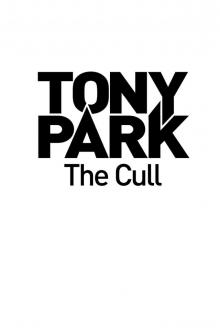 The Cull
The Cull Blood Trail
Blood Trail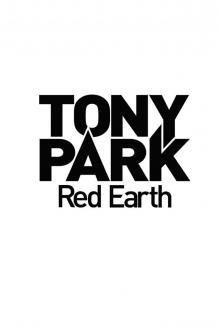 Red Earth
Red Earth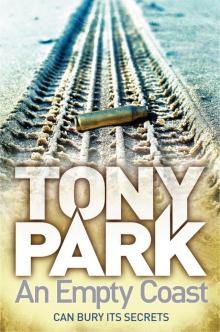 An Empty Coast
An Empty Coast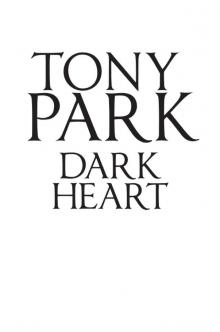 Dark Heart
Dark Heart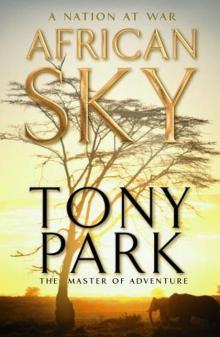 African Sky
African Sky The Delta
The Delta Captive
Captive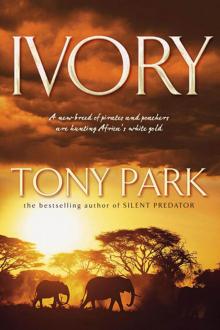 Ivory
Ivory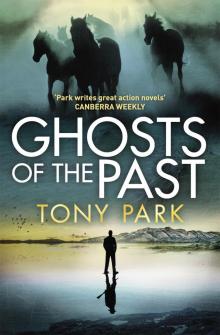 Ghosts of the Past
Ghosts of the Past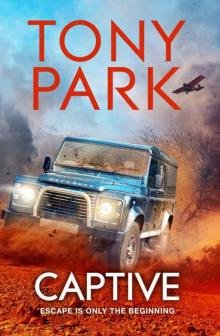 Captive_A High-octane And Gripping African Thriller
Captive_A High-octane And Gripping African Thriller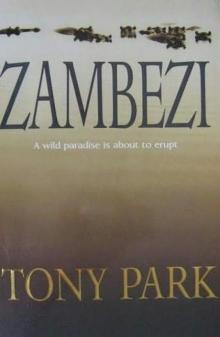 Zambezi
Zambezi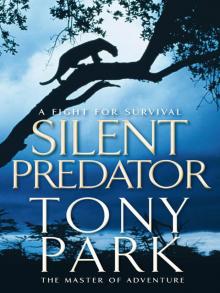 Silent Predator
Silent Predator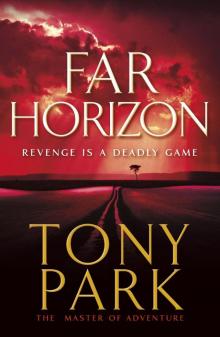 Far Horizon
Far Horizon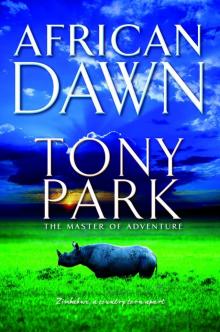 African Dawn
African Dawn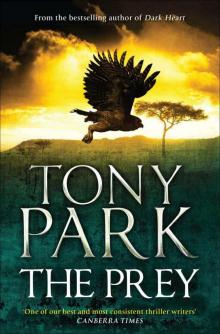 The Prey
The Prey Safari
Safari